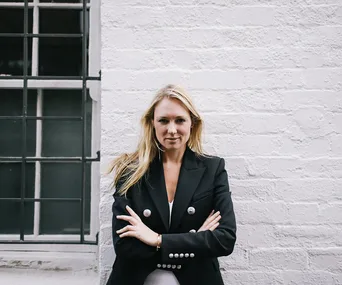
There’s not really that much difference between physical and financial wellbeing — what you put in your body and your bank account now will determine quality of life down the track.
By identifying bad money moves and making a few changes to your spending habits you can shift your money-making into first gear.
These five common money traps are a recipe for financial disaster:
1. You rarely set foot in the gym but still pay fees
You’ve heard the mantra ‘if you haven’t worn it for six months, get rid of it’. The same applies to your gym membership.
Stop the direct debits, get out that pricey gym gear and put it to good use going for a walk instead.
Walking is free, it gets you outdoors and it’s good for your mental health.
2. You rely on credit cards but only make minimum repayment
If you can, it’s best to repay the full amount every month to avoid paying additional interest.
Michael Baumann, Executive General Manager Consumer Finance CommBank says, “Paying the full amount owing as soon as possible will minimise the amount of interest you’re charged and help you clear the balance sooner. By making only the minimum repayment on your credit card from month to month, you may find it takes a long time to repay the amount you owe.
“It also significantly increases the cost to you as you’ll be charged the interest on the balance you owe over this period of time.”

“Paying the full amount owing as soon as possible will minimise the amount of interest you’re charged,” says Baumann.
(Credit: Getty)3. You spend on impulse
Emotional spending is like emotional eating — you know you don’t need that extra chocolate biscuit but it makes you feel good in the short term.
The same applies to clothes shopping, which is a common emotional spend. In fact, ASIC statistics show Aussies spent $20.4 billion on fashion in 2016. An easy fix? Get into the habit of waiting before tapping your savings away. Even one day could be enough time for you to realise you don’t need the item after all.
There are ways to have your cake and eat it, too, though … in moderation. Use a tool like Lock.Block.Limit — a useful feature of the CommBank app — to easily set a limit per transaction on your credit card. Then whenever you set your sights on a purchase above that limit, it’ll be declined.
4. You don’t budget
Imagine being able to shop, minus the guilt. That’s where a budget comes in handy, and learning how to stick to one is your ticket to financial freedom.
You’ll be able to see how you’re using your money and identify ways to save for the good things in life as well as necessities like bills. There are plenty of tools to help you map out your spending so you can keep to your budget. Try Spend Tracker, which lets you categorise your credit card spending making it easier to see the impact your spending decisions have on your everyday finances.

See takeaway food and coffees as a treat and try to find a budget-friendly alternative.
(Credit: Getty)5. You spend big on takeaway.
Coffee KeepCups are great for the planet but they’re not doing our bank balances any favours.
Each time we get a refill, it sets us back a few dollars. If you’re sipping on more than one coffee a day, as well as buying lunch, that’s some serious damage. Add UberEats, Deliveroo and Menulog to the mix and you’ve spent up big. Doing the sums on what you spend each week on these incidentals might be enough of a wake-up call.
Stick to one takeaway coffee a day or better still make it at home, pack your own lunch on most days, and cook dinners in bulk to save time.
Want to test your financial fitness? Take our five-question quiz below to see how you’re tracking.
To help improve your financial wellbeing, please visit financiallyfitfemales.com.au. Proud partner, CommBank. Always consider your personal circumstances before acting on financial advice



